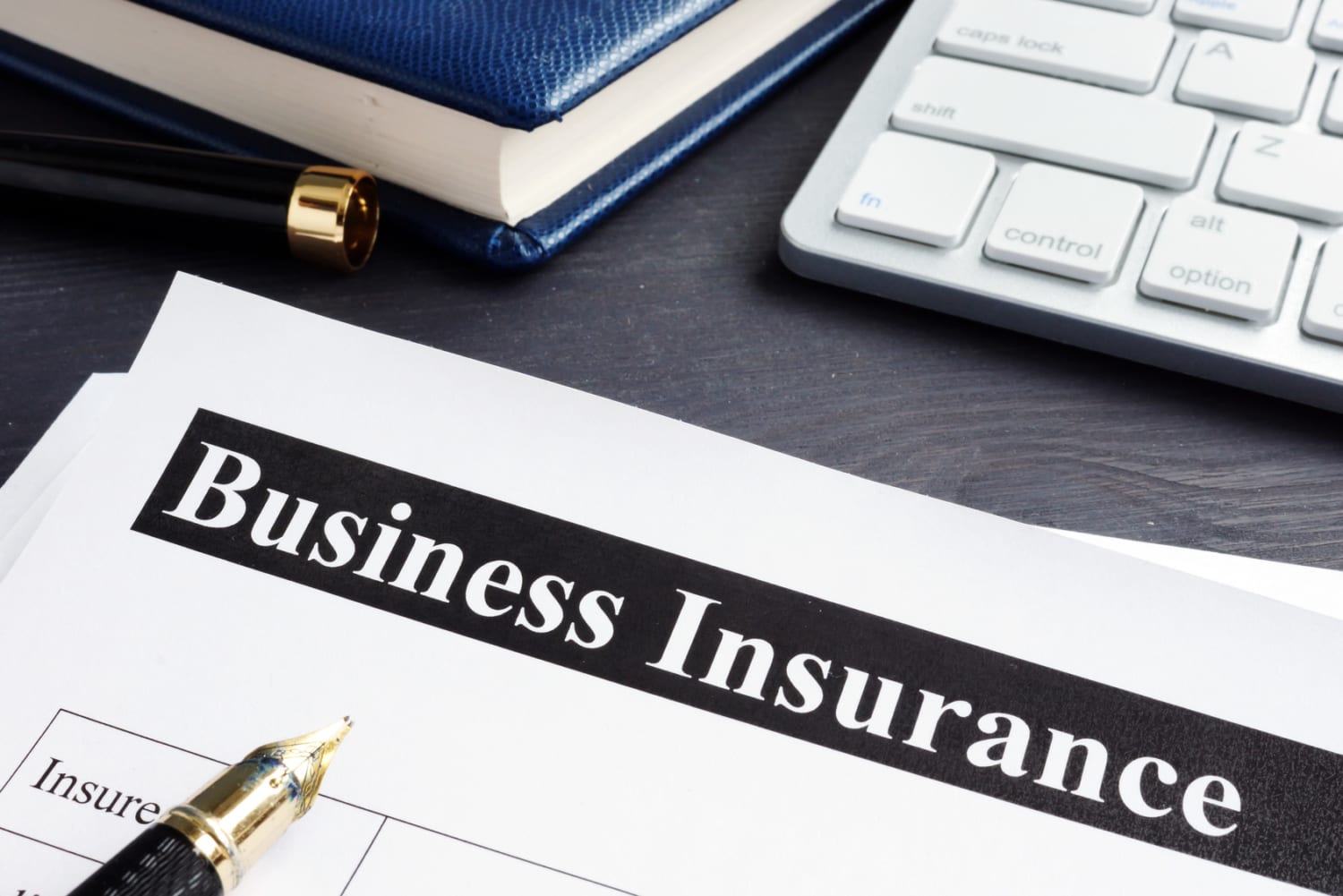Small Business Insurance Checklist: Everything You Need to Know
As a small business owner, protecting your business from potential risks is crucial. One of the most effective ways to ensure the security of your business is by having the right business insurance in place. Insurance helps mitigate the financial impact of unforeseen events such as accidents, lawsuits, or natural disasters. However, knowing what types of insurance you need and how to choose the right policies can be overwhelming.
In this comprehensive small business insurance checklist, we’ll guide you through everything you need to know about insuring your business, from understanding key policies to finding the right coverage. This article will give you the tools to evaluate your insurance needs, make informed decisions, and protect your business effectively.

Why Is Small Business Insurance Essential?
Business insurance is essential because it shields your business from a wide range of risks. Whether you’re running a home-based business or a larger enterprise, unexpected events can cause significant financial damage. Here are just a few reasons why business insurance is a must:
- Protects your assets: Coverage for your physical assets, such as buildings and equipment, ensures that if something goes wrong, you won’t lose everything you’ve worked for.
- Safeguards your employees: Workers’ compensation insurance ensures your employees are protected in case of job-related injuries.
- Provides peace of mind: Knowing that you’re covered against liabilities, accidents, and lawsuits allows you to focus on growing your business instead of worrying about worst-case scenarios.
Now, let’s dive into the small business insurance checklist to help you determine which types of coverage your business needs.
1. General Liability Insurance
What It Is:
General liability insurance is one of the most essential forms of business insurance. It protects your business against claims involving third-party bodily injury, property damage, and advertising injury. If a customer slips and falls in your store, or if a product you sell causes harm, this policy will cover legal fees, medical expenses, and damages.
Why You Need It:
Every business, regardless of size, faces the risk of general liability claims. If you’re found responsible for injuries or property damage, this coverage ensures you’re not left paying out of pocket.
- Average cost: Small businesses typically pay $300 to $1,000 per year for general liability coverage.
Tip: Always ensure your policy limits are high enough to protect against large claims, especially if you deal with high volumes of customers or clients.

2. Professional Liability Insurance
What It Is:
Also known as errors and omissions (E&O) insurance, professional liability insurance covers your business if a client claims that your professional services were inadequate or negligent. This policy is particularly important for businesses that provide advice, consulting, or specialized services.
Why You Need It:
If you’re offering professional services, your clients may file a lawsuit if they believe you’ve made a mistake or failed to deliver as promised. This insurance helps cover legal costs and settlements associated with these claims.
- Average cost: Premiums for professional liability insurance typically range from $500 to $2,000 annually.
Tip: If your business offers consulting, accounting, or legal services, this insurance is a must-have.
3. Property Insurance
What It Is:
Property insurance covers damage to your physical assets, such as buildings, inventory, and equipment. This policy protects you from events like fire, theft, vandalism, and natural disasters.
Why You Need It:
Without property insurance, the financial impact of losing key assets could be devastating for your small business. Whether you own or lease the property, protecting your business’s physical space and assets is crucial.
- Average cost: Small business owners typically pay around $500 to $2,000 per year for property insurance, depending on the value of their assets.
Key Considerations:
- Is your business in a high-risk area for natural disasters (e.g., floods or earthquakes)?
- Do you have valuable equipment that needs protection?
Tip: Consider business interruption insurance as part of your property insurance. This can cover lost income if your business has to shut down due to a covered incident.
4. Workers’ Compensation Insurance
What It Is:
Workers’ compensation insurance is mandatory in most states for businesses with employees. It provides coverage for medical expenses, lost wages, and rehabilitation costs if an employee is injured or becomes ill on the job.
Why You Need It:
Workers’ compensation insurance ensures that employees who are injured at work are taken care of and that your business is protected from costly lawsuits. It also ensures compliance with state laws.
- Average cost: Premiums are based on the size of your business and the type of work your employees do. Typically, businesses pay $0.75 to $2.74 per $100 of payroll.
Key Considerations:
- Is your business subject to state-mandated workers’ compensation requirements?
- Are your employees at risk for workplace injuries?
Tip: Even if you’re a sole proprietor, consider workers’ compensation insurance if you have employees, as it can cover you if you’re injured while working.
5. Business Interruption Insurance
What It Is:
Business interruption insurance helps cover lost income if your business operations are temporarily halted due to a covered event, such as a fire or natural disaster. It can also cover operating expenses during the downtime.
Why You Need It:
This type of insurance ensures that your business doesn’t suffer financially if it has to stop operations unexpectedly. It covers things like rent, utilities, and payroll, helping you stay afloat while you rebuild.
- Average cost: Premiums are often included in property insurance policies, but the additional cost for business interruption coverage can range from $500 to $2,000 per year.
Key Considerations:
- Does your business rely on physical premises to operate (e.g., a store or office)?
- Could your business be significantly affected if operations were disrupted for a few weeks?
Tip: Many small businesses find this coverage invaluable, particularly if they depend on a physical storefront or facility.
6. Commercial Auto Insurance
What It Is:
If your business owns vehicles, commercial auto insurance provides coverage for accidents involving company vehicles, including damage, injuries, and liability.
Why You Need It:
Whether you have a delivery van or a fleet of trucks, commercial auto insurance protects your business from the financial impact of accidents involving company-owned vehicles. This is especially important if employees use their personal cars for business purposes.
- Average cost: Small business owners pay between $1,200 to $2,400 per year for commercial auto insurance, depending on the number of vehicles.
Key Considerations:
- Does your business use vehicles for transporting goods, clients, or employees?
- Do employees use their own vehicles for business purposes?
Tip: If you don’t own vehicles but your employees use theirs for business, ask your insurer about hired and non-owned auto insurance.
7. Cyber Liability Insurance
What It Is:
Cyber liability insurance provides protection against data breaches, hacking incidents, and other cyber risks. It helps cover the costs of recovering lost data, notifying customers, and dealing with the aftermath of a breach.
Why You Need It:
With the increasing prevalence of cyberattacks, every business with an online presence should consider cyber liability insurance. A breach can result in substantial financial losses, so being prepared is essential.
- Average cost: Small businesses typically pay between $500 to $2,000 annually for cyber liability coverage.
Key Considerations:
- Does your business store sensitive customer or client data?
- Do you operate an e-commerce platform or handle online transactions?
Tip: If you handle sensitive data (e.g., credit card information or health records), cyber liability insurance is a must.
Small Business Insurance Checklist Summary
Here’s a quick recap of the small business insurance checklist:
- General Liability Insurance: Protects against third-party claims for injuries or damage.
- Professional Liability Insurance: Covers mistakes or omissions in professional services.
- Property Insurance: Covers damage to buildings, equipment, and inventory.
- Workers’ Compensation Insurance: Protects employees injured on the job.
- Business Interruption Insurance: Covers lost income during disruptions.
- Commercial Auto Insurance: Provides coverage for company-owned vehicles.
- Cyber Liability Insurance: Protects against data breaches and cyberattacks.

Frequently Asked Questions (FAQs)
1. What is the average cost of business insurance?
The average cost of business insurance depends on the type of coverage you need, your business’s size, industry, and location. Small businesses typically pay between $500 to $3,000 per year for basic coverage.
2. Do I need business insurance if I’m a freelancer or sole proprietor?
Yes, even if you’re a freelancer or sole proprietor, you should still consider getting general liability and professional liability insurance to protect yourself from potential risks.
3. Can I bundle my business insurance policies?
Yes, many insurance providers offer bundling options, which can save you money by combining different policies, such as general liability and property insurance.
4. How do I know what type of business insurance I need?
The type of insurance you need depends on your business’s industry, size
, and potential risks. It’s best to consult with an insurance agent or broker to assess your needs.
5. Is business insurance tax-deductible?
Yes, in most cases, business insurance premiums are tax-deductible as a business expense. Be sure to consult with an accountant for details on your specific situation.
Conclusion
Insuring your small business is one of the most important steps in protecting your livelihood and ensuring long-term success. By following this small business insurance checklist, you’ll have a solid foundation for evaluating your insurance needs and selecting the right policies.
Remember, no two businesses are the same, and your insurance needs will evolve as your business grows. Stay proactive and work with trusted insurance professionals to ensure you’re adequately covered.
For more information on business insurance options and quotes, check out these resources:
– Small Business Administration – Insurance Guide
– Insurance Information Institute – Business Insurance Basics
By investing in the right insurance coverage, you’re securing your business’s future and ensuring you’re prepared for whatever challenges come your way.
